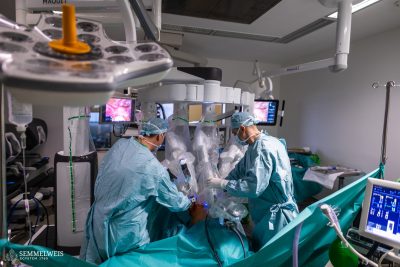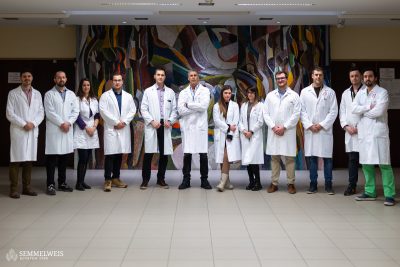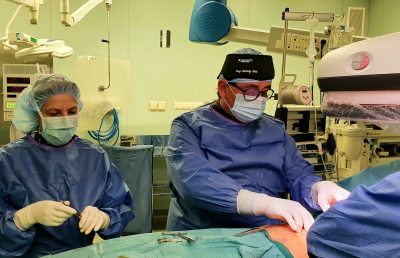People, who are more open to new experiences and are suffering from migraine, are less likely to suffer from depression as well. The latest finding of the MTA-SE-NAP B Genetic Brain Imaging Migraine Research Group also reveals that such people are more immune to developing the two diseases simultaneously. According to Dr. Gabriella Juhász, associate professor of the Department of Pharmacodynamics and head of the research group these research results greatly contribute to the understanding of the cerebral processes that lead to the development of migraine and to the identification of new drug targets in the prevention of migraine.
“The main objective of the research is to study mechanisms and biological processes that affect the development of migraine and the recurrence of migraine attacks with the help of genetic and imaging technologies and questionnaires.”, said Dr. Gabriella Juhász.
 The recently published results were based on the analysis of data gained from the database of a previously conducted large-scale research: questionnaires and genetic samples of over 3,000 volunteers in Budapest and Manchester were collected by the NewMood research funded by the European Union. The analysis of the NAP B research group focused on the parts of the questionnaire that referred to personality traits, the depression experienced by the volunteers and migraine-like headaches that occurred in the previous three months.
The recently published results were based on the analysis of data gained from the database of a previously conducted large-scale research: questionnaires and genetic samples of over 3,000 volunteers in Budapest and Manchester were collected by the NewMood research funded by the European Union. The analysis of the NAP B research group focused on the parts of the questionnaire that referred to personality traits, the depression experienced by the volunteers and migraine-like headaches that occurred in the previous three months.
 Dr. Máté Magyar, intern at the Department of Neurology pointed out that previous studies have proven that patients suffering from migraine were also more prone to anxiety disorders and depression, however, a link between migraine and certain personality traits have scarcely been researched.
Dr. Máté Magyar, intern at the Department of Neurology pointed out that previous studies have proven that patients suffering from migraine were also more prone to anxiety disorders and depression, however, a link between migraine and certain personality traits have scarcely been researched.
“Based on the Big Five model – neuroticism, extraversion, open-minded approach to experiences, friendliness, conscientiousness – the research results confirmed that neuroticism is a risk factor in the development of depression and migraine. It turned out that patients with migraine and an open-minded approach to experiences did not suffer from depression.”, Dr. Máté Magyar said.
This leads to the conclusion that people, who are more open-minded to experiences are less likely to develop both diseases. People who are open to new experiences are more able to cope with challenges, including diseases and pain.
The identification of such personality traits could be useful in the study of physiological mechanisms: the presence of an open-minded approach to experiences indicates the improved functionality of a certain area of the frontal lobe which is responsible for creative ideas and flexible thinking.
 “Thus, the research has helped the understanding of the cerebral regulatory processes that participate in the development of migraine and the identification of new, preventive therapies. For example people with more open personalities towards experiences respond better to placebo painkillers and psychotherapy.”, Dr. Gabriella Juhász said.
“Thus, the research has helped the understanding of the cerebral regulatory processes that participate in the development of migraine and the identification of new, preventive therapies. For example people with more open personalities towards experiences respond better to placebo painkillers and psychotherapy.”, Dr. Gabriella Juhász said.
The researchers aim to study other mechanisms that regulate the frequency of migraine attacks and to help understanding groups of patients who are more difficult to treat. The research group consists of clinicians, researchers and psychologists who work together in close cooperation to analyse and evaluate results in order to define further steps in clinical practice.
The research results were published in the journal Frontiers in Neurology and Dr. Máté Magyar gave an overview of the research at the Third Congress of the European Academy of Neurology. The young researcher takes part in the project as part of his PhD and would like to move on to study the effects of pain medication overuse on the group of patients gathered together in the NAP programme.
Eszter Keresztes
Photo: Attila Kovács – Semmelweis University
Translation: Ágnes Raubinek


